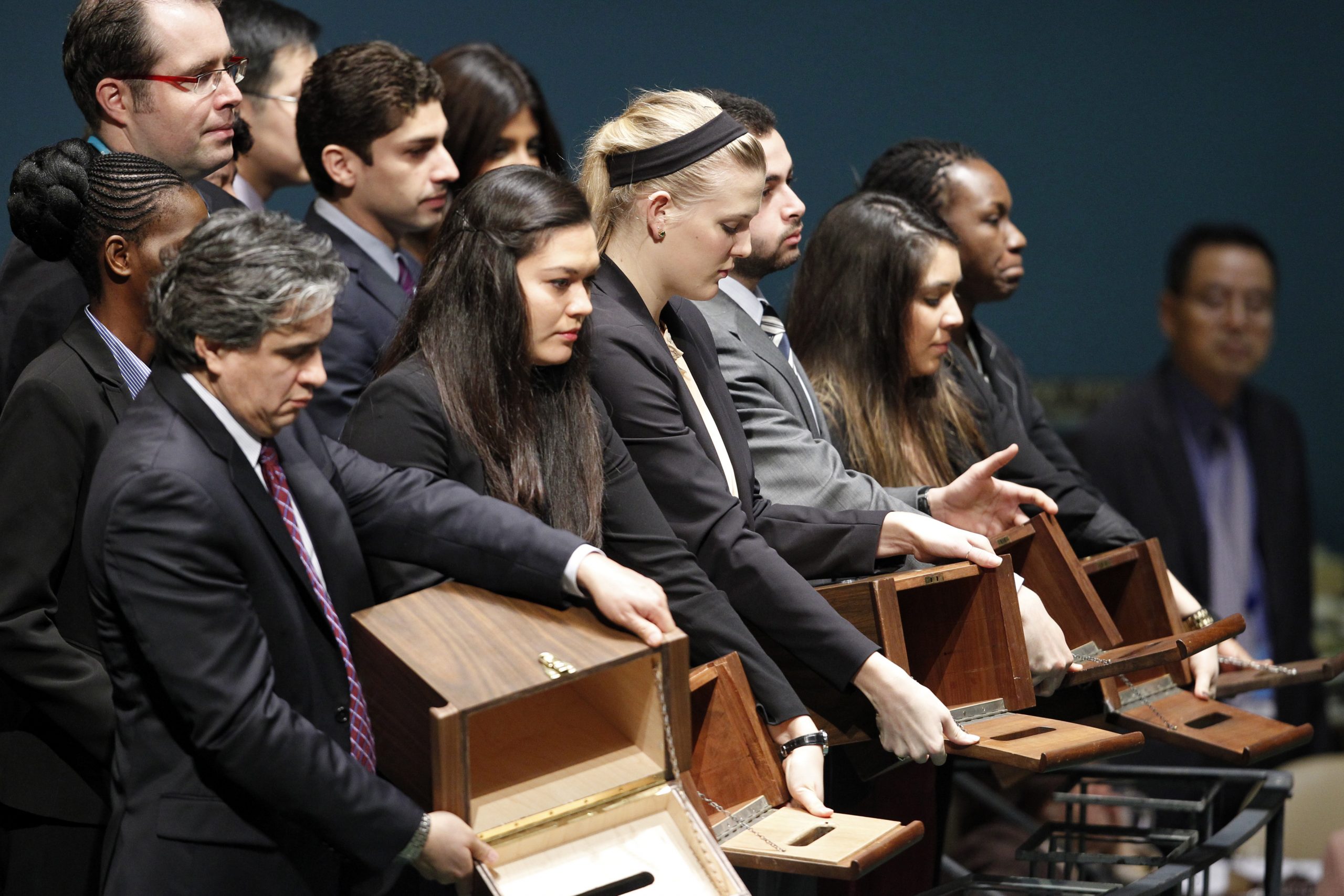
HRC35 | Welcome move by States to enhance membership and effectiveness
A group of 48 States from all regions has committed to more robust competition for a seat on the Council, and an objective way of addressing situations of human rights violations as ways of strengthening the world's peak human rights body.
In a welcome move, the Netherlands on behalf of a group of 48 UN member States outlined and committed to a range of measures to enhance the legitimacy and effectiveness of the Human Rights Council. The joint statement was delivered at the close of the 35th session of the Council, and draws on proposals made in a joint civil society submission on the occasion of the Council’s 10th anniversary in 2016.
‘We are committed to the success and effectiveness of the Council, and convinced that the Council has an invaluable role to play in promoting and protecting human rights worldwide’, the statement said.
‘Ten years after the Council’s creation, we are pleased at the commitment shown by this group of countries, under Dutch leadership, to make the Council more transparent, credible, responsive and effective in fulfilling its mandate’, said Michael Ineichen, ISHR’s Director of Human Rights Council Advocacy.
Enhancing membership and cooperation
The statement sets out a number of pledges by the 48 signatory States, including that they will strive for competitive elections to the Council and support candidates based primarily on human rights-based considerations.
‘States that are responsible for gross and systematic human rights violations, or that refuse to cooperate fully with the UN and uphold a rules-based international order have no place at the Council,’ Ineichen said.
Responding objectively and effectively to situations of concern
The States have also pledged to be guided by objective and human rights-based criteria in determining whether and how the Council should respond to situations of human rights violations and concern. Such criteria include whether the UN’s human rights experts have recommended or called for action, the extent of the country’s cooperation with the UN human rights system, and the situation of human rights defenders and other civil society actors in the country.
‘It’s a no-brainer: listening to the assessment of independent voices – like the UN’s rights experts and the High Commissioner – to commence the political process of responding adequately is long overdue’, Ineichen said.
The political commitment by 48 States further strengthens the role of the Secretary-General, the High Commissioner, the Council’s Special Procedures and OHCHR’s field presences to advise on the severity of a human rights situation, and to effectively serve as early warning triggers to address such situations.
‘The UN’s human rights experts should take up the invitation effectively issued by these 48 States and publicly call for action by the Council when the human rights situation warrants it,’ Ineichen said. It is also vital that the States signatory to the statement fulfil their pledge and lead or support such action when it is called for.
In the statement, States also commit to fully consult with civil society in determining their foreign policy towards the Council, and in determining priorities when running for a seat on the Council. They also deplore the use of procedural tactics – such as ‘no action motions’ – to stifle debate on critical human rights issues.
‘We warmly welcome this statement and the leadership shown by the Netherlands in elaborating and generating such support for the pledges therein. Such principled and strong leadership is vital to ensuring that the Council responds effectively to the human rights challenges of our time,’ said Ineichen.
Objective criteria to determine course of action
The statement references an earlier statement delivered by Ireland, which sets out the following objective criteria to initiate action:
- whether there has been a call for action by the UN Secretary General, the High Commissioner for Human Rights or a relevant UN organ, body or agency;
- whether a group of Special Procedures have recommended that the Council consider action;
- whether the State concerned has a national human rights institution with A-status; [and whether that institution has drawn the attention of the international community to an emerging situation and called for action];
- whether the State concerned has been willing to recognise that it faces particular human rights challenges and has laid down a set of credible actions, including a time- table and benchmarks to measure progress, to respond to the situation;
- whether the State concerned is engaging in a meaningful, constructive way with the Council on the situation;
- whether the State concerned is effectively cooperating with HRC Special Procedures, including by allowing country visits,
- whether the State concerned is engaging with OHCHR, including in the field of technical assistance and effective engagement with the UN Human Rights Treaty Bodies;
- whether a relevant regional mechanism or institution has identified a situation as requiring the attention of the international community; or whether the State concerned is cooperating with relevant regional organisations;
- whether the State is facilitating or obstructing access and work on the part of humanitarian actors, human rights defenders and the media.
Commitments supported by all regions
The statement was joined by the following States from all regions. The pledges in the statement also effectively respond to critiques of the Council, such as that delivered recently by US Ambassador to the UN Nikki Haley.
Contact: Michael Ineichen, Human Rights Council Advocacy Director, [email protected], +41 78 827 77 86
Photo: UN Multimedia
